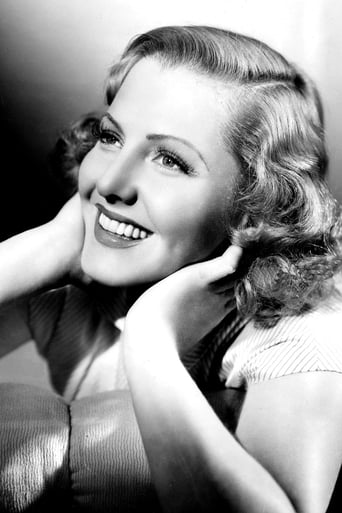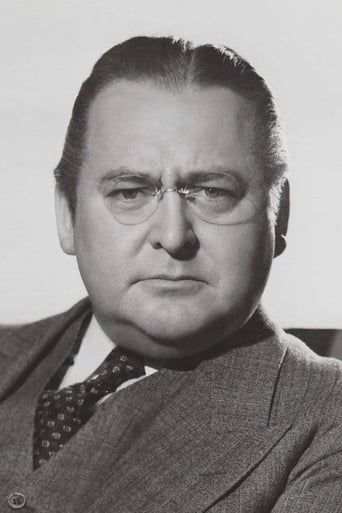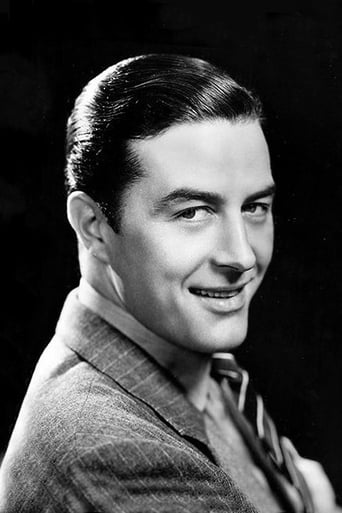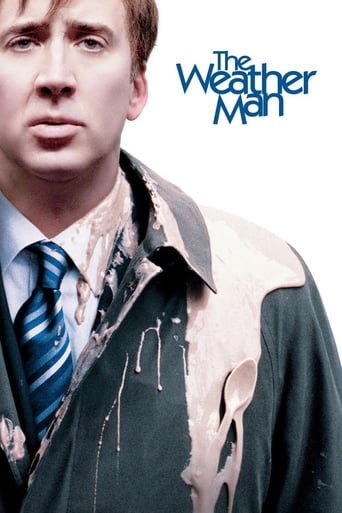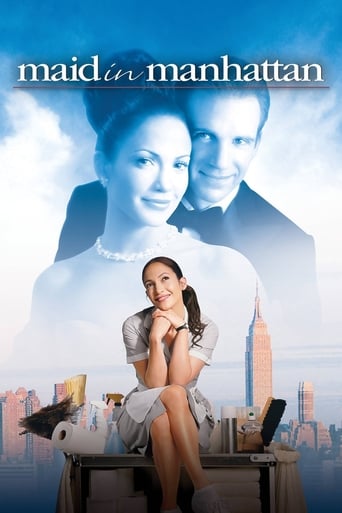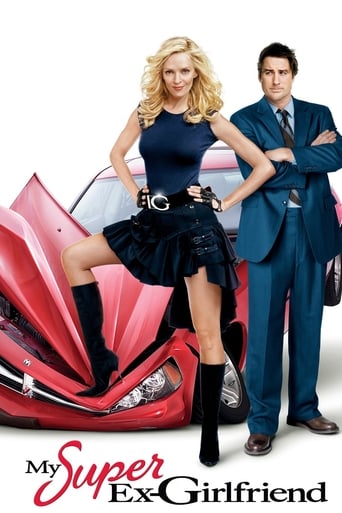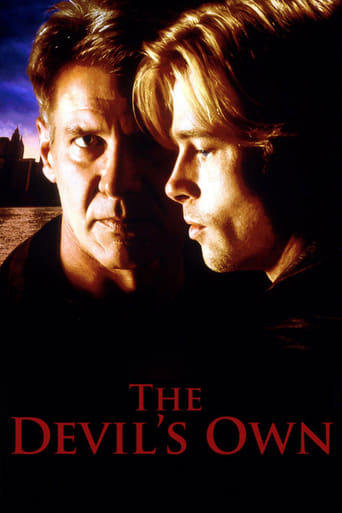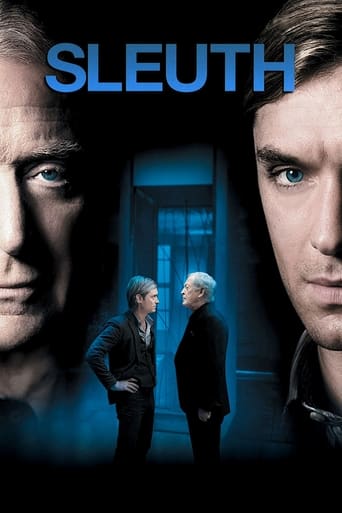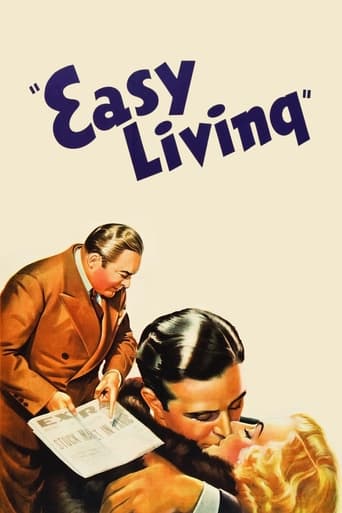
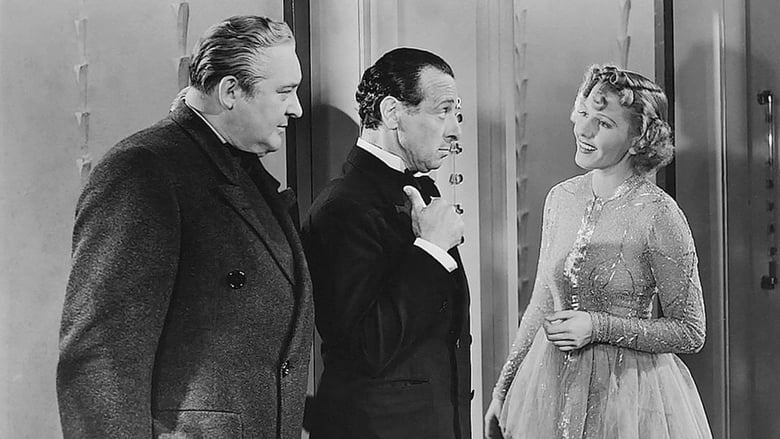
Easy Living (1937)
J.B. Ball, a rich financier, gets fed up with his free-spending family. He takes his wife's just-bought (very expensive) sable coat and throws it out the window, it lands on poor hard-working girl Mary Smith. But it isn't so easy to just give away something so valuable, as he soon learns.
Watch Trailer
Cast
Similar titles
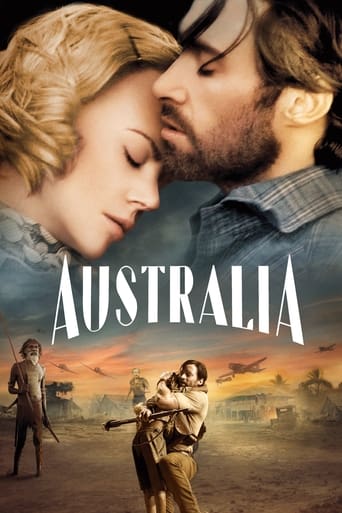

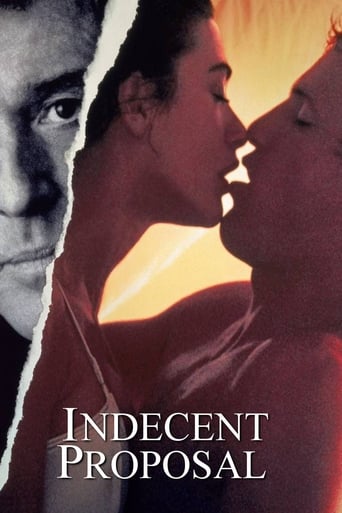
Reviews
Waste of time
The Worst Film Ever
When a movie has you begging for it to end not even half way through it's pure crap. We've all seen this movie and this characters millions of times, nothing new in it. Don't waste your time.
The film's masterful storytelling did its job. The message was clear. No need to overdo.
Sometimes amusing madcap, but not front-rank. The premise is a clever one—a falling mink coat elevates a working girl's life from a cheap flat to the penthouse. In the process, we get a humorous look at how reputation can make all the difference, especially among the rich and powerful. And how about that madcap eruption at the auto-mat. I'd almost forgotten about those serve-yourself banks of fast-food, something like an early McDonald's. Here, the goodie filled cubby-holes are turned into a hilarious free-for-all as hungry Depression era folks help themselves to a free lunch.Trouble is Jean Arthur has no one to really play off of, no Cary grant, so to speak. True, Ray Milland is her swain, but their scenes together are few and lack comedic spark. Then there's Edward Arnold as the bullying Wall Street tycoon. His constant yelling and abrasive manner, however, are more annoying than humorous, thus detracting from the overall mood. On the other hand, Arthur shows the engaging potential that often blossomed. Here, however, she's not really given the chance to sparkle, Arthur- fashion. Part of that is due to her many scenes with Luis Albernoni as the obnoxiously over-bearing Louis Louis.All in all, the film's something of a disappointment given the many talents involved. But it'll certainly do for a slow evening or a look at lavish movie interiors.
Mitchell Liesen was clearly frightened as a child by Cinderella; shortly after this outing in which Jean Arthur goes from rags to riches in nothing flat Claudette Colbert, another great actress who peaked in the 1930s/40s gets the same treatment courtesy of Jack Barrymore via Billy Wilder in Liesen's Midnight - and like Sturges Wilder would soon become writer-director. Inexplicbly Paramount contract songwriter Ralph Rainger, who composed the title song which is heard throughout is omitted from the credits though the song (with lyrics by Rainger's regular lyricist Leo Robin) went on to become a standard and is featured in the 1949 entry Easy Living featuring Victor Mature and Lucille Ball, with a screenplay by Irwin Shaw that has absolutely no connection to this prime example of the 'screwball' genre. With the likes of Franklin Pngbourne and James Gleason in support Sturges was already recruiting his repertory and leads Arthur, Arnold and Milland excel in this brilliant time-capsule of Hollywood's heyday.
My favorite films are from the '30s to the late '40s. Jean Arthur is one of my favorite actresses. Edward Arnold is one of my favorite character actors. I looked forward to this film with high expectations, but was very disappointed.The reason this movie disappointed me is difficult to pinpoint. Without more background, some elements of the story just don't seem to add up. There is a whole lot of yelling in this movie; that gets old. Oh yeah, and lots of slapstick. The Automat scene was waaaay too long. But mostly, the characters just don't seem quite on the mark. In addition to many great dramas, Miss Arthur's resume includes many of my favorite comedies: The Whole Town's Talking (1935), If You Could Only Cook (1935), Mr. Deeds Goes to Town (1936), The Ex-Mrs. Bradford (1936), You Can't Take It With You (1938), Mr. Smith Goes to Town (1939), The Devil and Miss Jones (1941), The Talk of the Town (1942), The More the Merrier (1943), A Foreign Affair (1948). I recommend them all over Easy Living. I even prefer A Lady Takes a Chance (1943).As much as I love Jean Arthur, her character here isn't portrayed quite right. She is just too innocent and unquestioning of everything that happens. Her attitude should have been less naive and more like, "I don't really understand why this windfall has come my way, but I'm going to take advantage of it while I can." She needed to be less ingenuous and more opportunistic. Her idealism and optimism needed to be tempered by a little realistic skepticism.The character of the Hotelier (Luis Alberni) is an immigrant Italian chef who has learned fluent American slang somewhere, but also has opened a HUGE, opulent hotel for upper crust clientèle. So, he has this great ambition to run an elite hotel, but doesn't see the need to speak to his proposed clientèle any differently than the boys in the Bronx? PLUS, we don't know how he convinced the "Number 3" financier in New York to finance this operation. How much money did this humble chef bring with him when he immigrated from Italy? Moreover, Arnold, the shrewd banker, has extended the guy not 1, not 2, but 3 mortgages! AND the 1st mortgage is overdue by 3 YEARS, the 2nd by 2 YEARS and the 1st by 1 YEAR! Not consistent with Arnold's character at all!Ray Milland is pretty light weight, and he never infuses his character with more than 1 dimension.There isn't really a character with whom I could identify. For me, a successful screwball comedy needs one stable character for all of the silliness to revolve around. That gives the audience somebody to identify with and grounds the movie in some kind of reality. William Powell in My Man Godfrey and Brian Aherne in Merrily We Live are the best examples.I thought this movie was a lot of noise and action that never really drew me into the story. In sum, I felt like an outsider watching a movie. It never really tickled my funny bone or inspired my empathy as better comedies do.
This is a delightful little comedy provided you turn off your brain and just let yourself laugh and enjoy the whole crazy mess, as the plot is very contrived and just about impossible to believe! I could, and as a result, I had a great time! The film begins with a millionaire financier (Edward Arnold) arguing with his wife about her extravagance. In a fit of anger, Arnold grabs a brand-new sable coat and tosses it off the roof of their luxury high-rise! By chance, it lands on the unsuspecting Jean Arthur--who naturally tries to return it. However, Arnold will hear nothing of it and insists she keeps the coat. This little innocent and strange encounter would drastically change all their lives as the notion of a total stranger receiving such an expensive gift starts people talking--and assuming that the nice Miss Arthur is Arnold's mistress. It's actually very funny that not once is the word 'mistress' used but the audience is sure this is exactly what everyone is assuming.Since Arnold is so powerful a force on Wall Street, people almost immediately begin kissing up to Jean--assuming she has the inside track on influencing Arnold. Jean, who is just too naive and nice for her own good, just can't understand why everyone is suddenly being so nice to her and giving her lots and lots of free things--including a super-expensive luxury suite, more furs and practically anything else her heart could desire.In addition to the affair not being the least bit true, there are many other plots and subplots that all are set into motion by this supposed affair--all culminating in a very funny mess. One problem is that Jean has fallen for Arnold's son (who she assumes is just an ordinary working man), another is that Arnold's wife is now suing for divorce and one very innocent statement by Arthur practically destroys the stock market!! It is hilarious and very cute that one tiny little incident kept snowballing into this enormous mess! Given that it's all Hollywood fantasy, you know that by the end everything will somehow magically turn out perfectly. However, despite this predictability, the journey to this happy ending is one that you just have to see to believe--making this one of the better screwball comedies of the 1930s. Any serious fan of the classic years of Hollywood must see this film.
